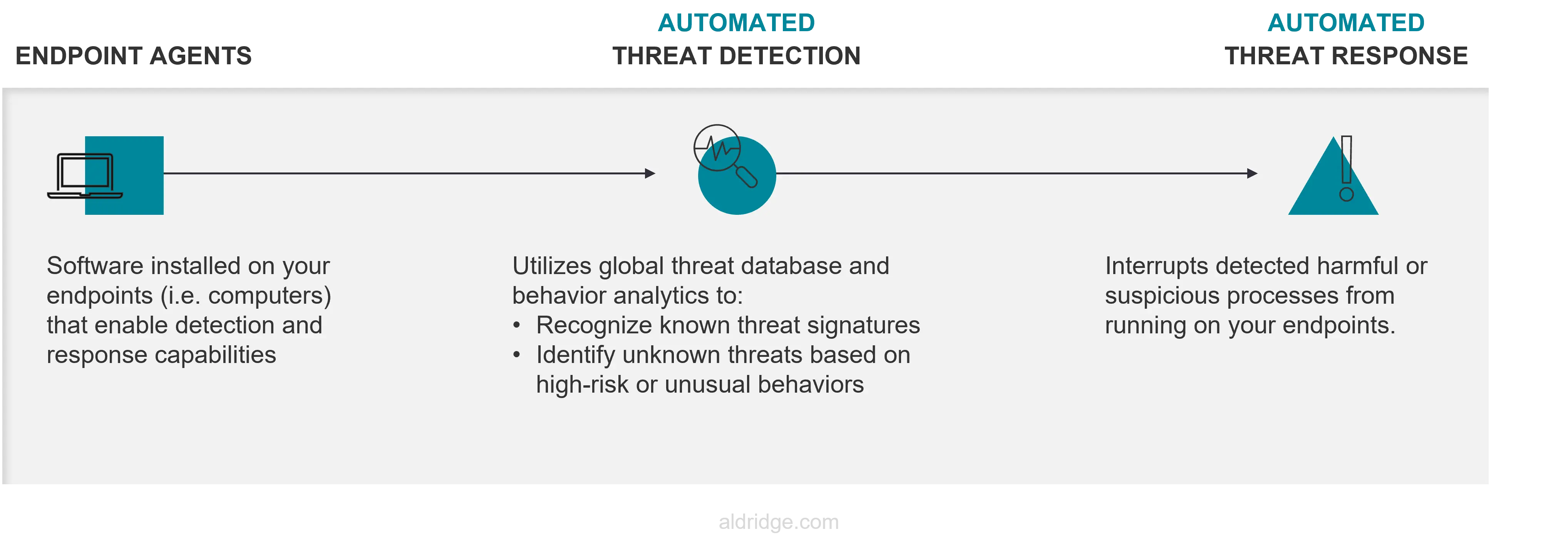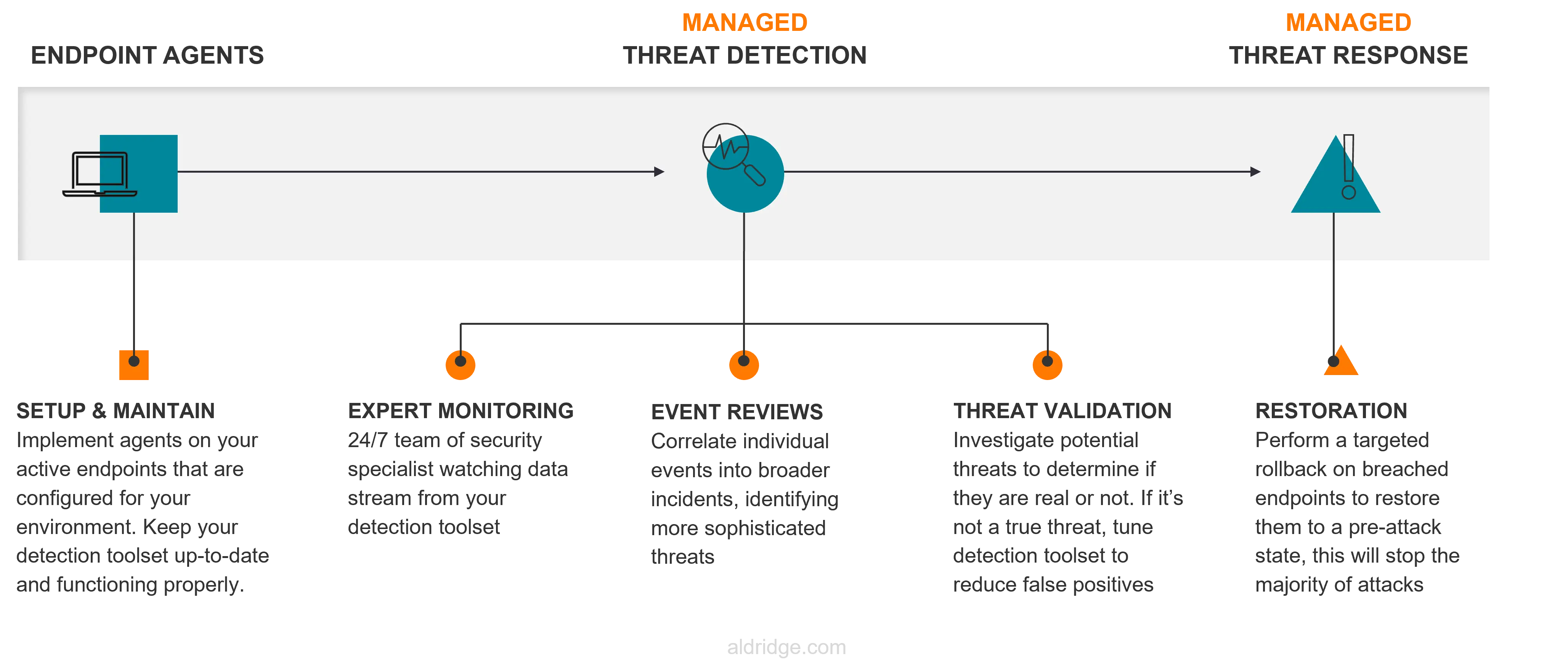Managed Detection and Response (MDR) and Endpoint Detection and Response (EDR) are commonly thrown-around terms in the cybersecurity space. Although they sound similar, they are pretty different. The simplest way to think about it is that MDR refers to a professional service, whereas EDR refers to a security tool (often utilized by MDR teams).
What is Endpoint Detection and Response (EDR)
Endpoint Detection and Response (EDR) consolidates the information flowing from your endpoints (workstations, laptops, servers) through the Next-Generation Antivirus (NGAV) software installed on them. An EDR tool can:
- Monitor all your endpoints and provide telemetry that a security team can analyze
- Continually update risk factors and threat signs by pulling data from a global network of EDR tools
- Detect abnormal behavior and auto-remediate evident malicious activity

What is Managed Detection and Response (MDR)?
Managed Detection and Response (MDR) is a professional service that provides a specialized security team that will monitor your endpoints 24/7, validate threats, and responds to legitimate attacks. MDR teams typically use EDR and NGAV to perform their functions by extension.

What Does MDR do That EDR Can’t
Event Correlation
Someone ringing your home doorbell but not being there may irritate you but not cause alarm. But if you knew someone was ringing the doorbell of every home in your neighborhood and focusing on the homes that didn’t answer – that’s a pattern that may merit further scrutiny. The MDR security team can take those individual events and recognize how to detect more-sophisticated attacks.
Security Expertise
MDR teams have extensive experience defending against the current threat landscape, and they can adjust your environment’s EDR policies to better detect and protect against these threats before they come to your door.
Collaboration
When faced with a legitimate threat, your MDR team can loop in your networking team and work together to resolve the problem.
Learn more about MDR and how we have used it to protect our business.
Deciding Between MDR or Just EDR
The decision between MDR and EDR ultimately comes down to your organization’s internal security resources. The typical small-to-mid-size organization needs an MDR solution because they likely don’t have the in-house cybersecurity resources and expertise to manage an EDR tool 24/7 effectively. MDR provides smaller businesses with a cost-effective way to receive the value an internal security team would deliver.
For organizations with an internal security team, EDR is an excellent option. EDR is the more flexible option because your internal security is in complete control of its use. However, MDR still may be an appealing choice if you only have senior-level internal security resources. Those senior resources can handle the high-level tasks while your MDR team handles operations.
At Aldridge, we provide all our IT Outsourcing clients with MDR as we believe it is a critical piece of an effective security solution. Interesting in partnering with us? Please fill out our contact form to set up a free consultation and start taking your security to the next level.






